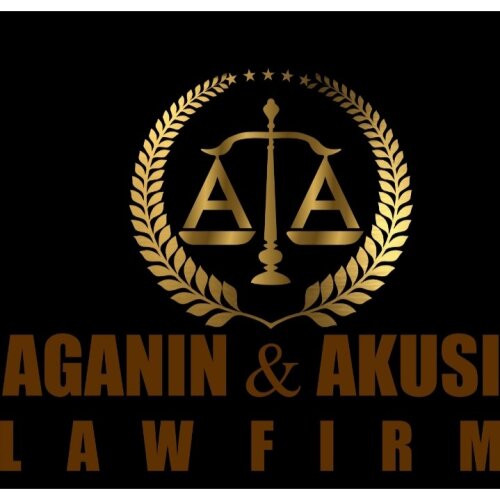Best Assault & Battery Lawyers in Nigeria
Share your needs with us, get contacted by law firms.
Free. Takes 2 min.
Or refine your search by selecting a city:
List of the best lawyers in Nigeria
About Assault & Battery Law in Nigeria
In Nigeria, assault and battery are considered serious offenses and are treated under both criminal and civil law. Assault refers to the threat or attempt to inflict physical harm on another person, while battery involves the actual physical contact or harm inflicted. Nigerian law seeks to protect individuals' rights to personal safety and bodily integrity, and the consequences of committing such acts can range from fines and compensation to imprisonment. The Nigerian legal framework, rooted in the Penal Code for the Northern states and the Criminal Code for the Southern states, defines the elements of these offenses and prescribes punishments accordingly.
Why You May Need a Lawyer
Legal representation may be necessary in several scenarios involving assault and battery. If you are a victim seeking justice and compensation for damages, a lawyer can help navigate the legal process and advocate on your behalf. Conversely, if you are accused of assault or battery, obtaining legal counsel is crucial to ensure that your rights are protected and to mount an effective defense. Other situations include complex cases involving false allegations, self-defense claims, or cases requiring a deeper understanding of Nigerian law and procedures.
Local Laws Overview
Assault and battery laws in Nigeria are encapsulated within the Criminal Code (applicable in Southern Nigeria) and the Penal Code (applicable in Northern Nigeria). Key aspects of these laws include:
- The definition and differentiation between assault, which involves threat, and battery, which involves actual physical harm.
- The prescription of punishments, which can range from fines to imprisonment, depending on the severity and circumstances of the offense.
- The provision for defenses, such as self-defense or defense of property.
- Legal procedures including reporting, arresting, and charging suspects, as well as trial and sentencing processes.
Frequently Asked Questions
What is the difference between assault and battery?
Assault involves the threat or attempt to cause physical harm, while battery involves actual physical contact or harm.
What are the potential punishments for assault and battery in Nigeria?
Punishments can include fines, compensation to the victim, and imprisonment, depending on the severity of the offense.
Can I claim self-defense in an assault or battery case?
Yes, self-defense is a legal defense available in cases where you can prove that you acted to protect yourself from harm.
What should I do if I've been falsely accused of assault or battery?
You should seek legal counsel immediately to help prove your innocence and protect your rights.
How can a victim of assault or battery seek justice?
Victims can report the crime to the police, pursue legal action, and seek compensation with the help of a lawyer.
Are there any specific time limits for reporting assault and battery cases?
While there is no specific time limit, it is advisable to report as soon as possible to preserve evidence and witness testimony.
Can assault and battery cases be settled out of court?
Yes, with mutual consent, parties involved can opt for an out-of-court settlement, often facilitated by legal representatives.
Do assaults and batteries fall under civil lawsuits as well?
Yes, victims may pursue civil cases to claim damages for injuries or losses incurred due to the offense.
What role do the police play in assault and battery cases?
The police are responsible for investigating the crime, arresting suspects, and providing evidence to the courts.
Can assault and battery charges be dropped?
Charges may be dropped if there is insufficient evidence or if the victim decides not to pursue the case, subject to legal procedures.
Additional Resources
Individuals seeking to understand more about assault and battery laws in Nigeria can reach out to the following resources:
- Nigerian Bar Association (NBA) - Offers directories for finding qualified lawyers.
- Legal Aid Council of Nigeria - Provides legal assistance to those unable to afford a lawyer.
- Federal Ministry of Justice - Oversees legal frameworks and provides information on legislation.
- Police Stations - Local police can provide guidance on reporting and legal procedures.
Next Steps
If you find yourself involved in an assault or battery situation, here are the steps to follow:
- Seek Immediate Legal Advice: Contact a qualified lawyer who can guide you based on the specifics of your case.
- Report to Authorities: If you are a victim, report the incident to the police to initiate legal proceedings.
- Document Everything: Gather evidence, including medical records, witness statements, and any other documentation relevant to the case.
- Consider Mediation: For cases where reconciliation or compensation is possible outside the court system, consider mediation.
Lawzana helps you find the best lawyers and law firms in Nigeria through a curated and pre-screened list of qualified legal professionals. Our platform offers rankings and detailed profiles of attorneys and law firms, allowing you to compare based on practice areas, including Assault & Battery, experience, and client feedback.
Each profile includes a description of the firm's areas of practice, client reviews, team members and partners, year of establishment, spoken languages, office locations, contact information, social media presence, and any published articles or resources. Most firms on our platform speak English and are experienced in both local and international legal matters.
Get a quote from top-rated law firms in Nigeria — quickly, securely, and without unnecessary hassle.
Disclaimer:
The information provided on this page is for general informational purposes only and does not constitute legal advice. While we strive to ensure the accuracy and relevance of the content, legal information may change over time, and interpretations of the law can vary. You should always consult with a qualified legal professional for advice specific to your situation.
We disclaim all liability for actions taken or not taken based on the content of this page. If you believe any information is incorrect or outdated, please contact us, and we will review and update it where appropriate.
Browse assault & battery law firms by city in Nigeria
Refine your search by selecting a city.
















